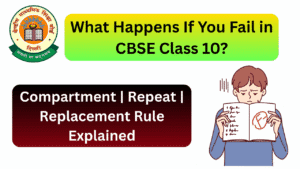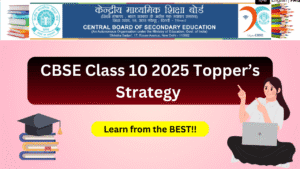Completing Class 10th, whether through CBSE, ICSE, or state boards like Madhyamik, is a significant milestone in every student’s academic journey. It’s a time filled with excitement, anticipation, and often, a bit of confusion. Questions like “What subject to take after 10th class?” or “What to do after Class 10 Madhyamik?” are common. If you’re a student or parent going through this crucial moment, this article is here to simplify the decision-making process and help you choose a path that suits your interests and goals.
Know Your Options After Class 10th
After Class 10th, students in India typically choose from three main academic streams for Class 11th and 12th: Science, Commerce, and Humanities (Arts). Additionally, vocational courses and alternative pathways offer practical options for those seeking early employment through skill development. Let’s look in detail into each to help you decide what courses to do after 10th.
1. Science Stream
The Science stream is a popular choice for students passionate about innovation, technology, or healthcare, especially those wondering “what to do after Class 10 for NEET” or engineering.
- Who It’s For: Students interested in medical, engineering, or research careers.
- Subjects: Physics, Chemistry, Mathematics (PCM), Biology (PCB), or electives like Computer Science, Biotechnology, or Physical Education.
- Career Paths: Doctor, engineer, scientist, data analyst, pharmacist, or architect. There are some common career options that anybody can pursue irrespective of the stream chosen: teacher, government jobs through UPSC, SSC, Banking Exams, Railways, etc.
- Why Choose It?: Opens doors to prestigious, high-demand fields like medicine and engineering. For NEET aspirants, choosing PCB (Physics, Chemistry, Biology) is essential to prepare for medical entrance exams.
- Challenges: Requires strong analytical skills (good mathematical skills) and dedication due to rigorous coursework. Many students who are weak in Maths, think of choosing PCB. But the catch here is subjects like Physics and Chemistry also include substantial mathematics.
2. Commerce Stream
Commerce is ideal for those who enjoy numbers, business, and financial systems.
- Who It’s For: Students interested in business, finance, or entrepreneurship.
- Subjects: Accountancy, Business Studies, Economics, Mathematics (optional), Informatics Practices, or Entrepreneurship.
- Career Paths: Chartered Accountant (CA), Company Secretary (CS), Certified Financial Analyst (CFA), banker, economist, or MBA graduate.
- Why Choose It?: Offers diverse opportunities in corporate and entrepreneurial fields beside career options that anybody can pursue irrespective of the stream chosen: teacher, government jobs through UPSC, SSC, Banking Exams, Railways, etc.
- Challenges: Involves understanding complex financial and economic concepts.
3. Humanities (Arts) Stream
Humanities, often called Arts, is perfect for creative and analytical minds, particularly those asking “what to do after 10th for UPSC.”
- Who It’s For: Students passionate about history, politics, literature, or social sciences.
- Subjects: Political Science, History, Geography, Sociology, Psychology, Economics, or Literature.
- Career Paths: Civil servant (UPSC), lawyer, journalist, teacher, psychologist, or social worker.
- Why Choose It?: Flexible and creative, with growing opportunities in media, law, and public service. Subjects like Political Science and History align closely with the UPSC syllabus.
- Challenges: There is common misconception that arts/humanities is “easy,” but it requires strong critical thinking and communication skills.
4. Vocational Courses
For students eager to gain practical skills and want to get a job sooner, vocational courses are excellent options when considering what courses to do after 10th.
- Who It’s For: Students interested in hands-on, job-oriented training.
- Examples: Industrial Training Institutes (ITI) for trades like electrician or mechanic; Polytechnic diplomas in engineering, computer applications, or hotel management.
- Career Paths: Technician, junior engineer, hospitality professional, or skilled tradesperson.
- Why Choose It?: Shorter duration and direct path to employment.
- Challenges: Limited scope for higher academic pursuits without further study.
How to Choose the Right Stream
Choosing a stream is a personal decision that should be based on your interests, strengths, and aspirations. If you’re wondering “after Class 10th, which stream is best?” or “what subject to take after 10th class?”, there’s no one-size-fits-all answer. Here’s how to make an informed choice:
- Assess Your Interests & Strengths: Think on subjects you enjoy and score better in. Do you love solving math problems, writing essays, or conducting science experiments?
- Check Aptitude & Personality: Online aptitude tests or career assessments can highlight your strengths and suggest suitable careers.
- Consult Career Counsellors: Professional counselors offer personalized guidance based on your skills and goals, especially for students completing Class 10 Madhyamik.
- Discuss With Parents & Teachers: They know you well and can provide valuable insights, but ensure the final decision is yours.
- Align With Long-Term Career Goals: Research careers that excite you and the qualifications they require. For example, NEET requires PCB, while UPSC benefits from Humanities.
Alternative Paths for Non-Traditional Interests (for those who don't want to go to schools)
Not every student wants to follow the traditional academic route, and that’s okay! Here are some alternative paths for those exploring what to do after Class 10 Madhyamik or CBSE:
- National Institute of Open Schooling (NIOS): Often simply called Open Schooling. It offers flexible learning for students who want to study at their own pace or pursue unconventional subjects. In this you have to study from your home and give exam. There is no need to attend any school. This way you can get your Class 12 Certificate (valid everywhere in India) and do whatever you want to do.
- Skill India & NSDC Programs: Government-backed initiatives provide training in skills like digital marketing, retail, or healthcare.
- Online Certifications: Platforms like Coursera, Udemy, or Google offer courses in graphic design, coding, YouTubing, or photography, allowing you to build a portfolio early. Now-a-days with increasing number of creators, the demand for video editing, and graphic designer is increasing and has a very high potential of growing in future.
These options are perfect for students with entrepreneurial spirits or niche interests.
Popular Entrance Exams After Class 10th
For students aiming for competitive fields, preparing for entrance exams early can give you a head start. Some key exams include:
- Polytechnic Exams (JEXPO, JEECUP): For admission to diploma courses in engineering or technology.
- Sainik School/RIMC Entrance: For students interested in military or defense careers.
- NDA Foundation Courses: Early preparation for the National Defence Academy exam (ideal for Science students).
- NTSE & KVPY: Scholarship exams for Science-focused students, offering financial support and recognition.
- SSC MTS: For getting a central government job directly.
Check eligibility and start preparing with coaching or online resources if needed.
Boards Available After Class 10th
When choosing a stream, you’ll also select a board for Class 11th and 12th. Here’s a quick overview:
- CBSE: Central Board of Secondary Education, widely recognized and structured for competitive exams like JEE and NEET.
- ICSE: Indian Certificate of Secondary Education, known for its comprehensive curriculum and focus on English.
- State Boards: Vary by state, often more affordable and aligned with regional languages and exams (eg: WBCHSE).
- International Boards (IB, IGCSE): Offer global curricula, ideal for students planning to study abroad, but less common and more expensive.
Choose a board based on your academic goals, budget, and comfort with the curriculum.
Future Planning: Set SMART Goals
To stay focused, set SMART goals—Specific, Measurable, Achievable, Relevant, and Time-bound. For example:
- “I want to become a doctor, so I’ll choose PCB in Class 11th, score 90% in Class 12th, and start NEET preparation by joining a coaching institute within six months.”
- “I’m interested in UPSC, so I’ll take Humanities, aim for a BA degree, and start reading NCERTs this year.”
Writing down your goals keeps you motivated and on track.
Aiming for Government Jobs (UPSC, SSC, and More)
Many students aspire to secure prestigious government jobs through exams like the Union Public Service Commission (UPSC) or Staff Selection Commission (SSC). If you’re asking “what to do after 10th for UPSC,” here’s your roadmap:
- Best Stream: Humanities (Arts) is highly recommended for UPSC aspirants, as subjects like Political Science, History, Geography, and Economics align closely with the UPSC syllabus. However, Science or Commerce students can also succeed with dedicated preparation, as UPSC allows graduates from any stream. SSC exams (e.g., CGL, CHSL) are more flexible and open to all streams, with a focus on general knowledge, math, and English.
- Next Steps:
- Choose Humanities for early exposure to UPSC-relevant subjects, or any stream if you’re confident in self-study.
- After Class 12th, pursue a bachelor’s degree (e.g., BA, B.Sc., B.Com) to become eligible for UPSC (graduation required) or SSC (some posts require only 12th).
- Start preparing early with NCERT books, current affairs (read newspapers like The Hindu), and coaching for UPSC/SSC if needed.
- Consider joining UPSC foundation courses after Class 10th for long-term preparation.
Preparing for Banking Jobs (Private Banks and PSUs)
Banking is a popular career choice, offering roles in private banks (e.g., HDFC, ICICI) or Public Sector Undertakings (PSUs) like State Bank of India (SBI) or Punjab National Bank (PNB).
- Best Stream: Commerce is ideal, as it covers Economics, Accountancy, and Business Studies, which are relevant to banking. However, Science or Arts students can also enter banking with the right qualifications—“what subject to take after 10th class” depends on your interest, but Commerce gives an edge.
- For Private Banks:
- After Class 12th, pursue a bachelor’s degree like B.Com, BBA, or BA (Economics). Private banks value graduates with strong communication and analytical skills.
- Develop skills in customer service, financial analysis, and computer literacy (e.g., MS Office, tally).
- Prepare for bank recruitment tests (e.g., aptitude, reasoning, English) and interviews.
- Consider internships or certifications in banking or finance (e.g., NISM certifications) to stand out.
- For PSU Banks:
- Clear exams like IBPS PO, IBPS Clerk, SBI PO, or SBI Clerk after completing a bachelor’s degree.
- Focus on quantitative aptitude, reasoning, English, and general awareness (banking and current affairs).
- Start preparing inlider’s degree.
FAQs: Your Questions Answered
-
What to do after 10th for UPSC?
Choose the Humanities (Arts) stream to study subjects like Political Science, History, and Geography, which align with the UPSC syllabus. However, any stream works if you pursue a bachelor’s degree and start early preparation with NCERT books and current affairs.
-
What subject to take after 10th class?
It depends on your interests and goals. Take Science (PCB) for medicine or engineering, Commerce for business or banking, or Humanities for UPSC, law, or journalism. Assess your strengths and consult a career counselor for clarity.
-
What to do after Class 10 Madhyamik?
After Madhyamik, choose a stream (Science, Commerce, or Arts) based on your career goals, or opt for vocational courses like ITI or Polytechnic for quick skill-based jobs. Set SMART goals and explore entrance exams like JEXPO for diplomas.
-
After Class 10th, which stream is best?
There’s no “best” stream—it depends on you! Science is great for medical or engineering, Commerce for business or banking, and Arts for UPSC or creative fields. Align your choice with your interests and long-term career plans.
-
What to do after Class 10 for NEET?
Choose the Science stream with PCB (Physics, Chemistry, Biology) in Class 11th and 12th. Start NEET preparation early with NCERT books, join coaching if needed, and aim for high marks in Class 12th to qualify for medical entrance.
-
What courses to do after 10th?
Academic streams (Science, Commerce, Arts) lead to degrees and careers like medicine, banking, or UPSC. Alternatively, vocational courses (ITI, Polytechnic) or online certifications (coding, digital marketing) offer quick skill-based job opportunities.
-
What if I choose the wrong stream?
It’s not the end of the world! You can often switch streams in Class 11th or pursue a different field after Class 12th through bridge courses or alternative qualifications.
-
Can I switch streams later?
Yes, but it’s easier to switch within the first few months of Class 11th. After Class 12th, you may need additional courses (e.g., a diploma or certification) to change fields.
-
Is Arts only for weak students?
Absolutely not! Arts is a dynamic stream leading to careers in law, journalism, UPSC, and more. It’s ideal for creative and analytical thinkers.
-
Can I earn money while studying?
Yes! Part-time freelancing (e.g., content writing, graphic design) or online tutoring can help you earn while studying, especially with skills from vocational or online courses.
Have questions or need help deciding? Drop a comment below, and let’s navigate this exciting phase together!







sir please suggest me in agricultural field which jobs is the best for agriculture.
and also tell me about the exam.